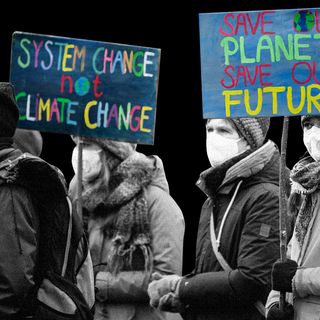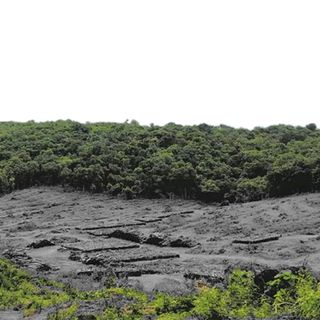The Amazon rainforest in Brazil, well known for its ability to absorb large amounts of carbon dioxide from the atmosphere, is now releasing more carbon than it has absorbed over the past decade, according to a new study.
Research findings regarding the rainforest’s carbon emissions were published in Nature Climate Change, and suggest that people can no longer depend on one of the world’s largest carbon sinks to help absorb pollution. “We half-expected it, but it is the first time that we have figures showing that the Brazilian Amazon has flipped, and is now a net emitter,” co-author Jean-Pierre Wigneron, a scientist at France’s National Institute for Agronomic Research (INRA), told AFP.
The Brazilian rainforest makes up 60% of the total Amazon rainforest cover. The study showed that between 2010 and 2019, the Amazon emitted 16.6 billion tonnes of carbon dioxide while absorbing only 13.9 billion tonnes. “We don’t know at what point the changeover could become irreversible,” Wigneron adds, suggesting the likelihood of a time when the forest cover would become ineffective in reducing carbon emissions.
The reason for carbon loss? Forest degradation and deforestation due to human activity and climate change, both accelerated by Brazil’s weakening environment policies, scientists say. Researchers found that deforestation — because of forest fires and cutting of trees — increased four times in 2019 (amounting to almost 4 million hectares), in comparison to the previous two years.
Related on The Swaddle:
Amazon Rainforest on the Brink of Permanently Becoming Grassland, Experts Say
But, researchers found that natural degradation, the phenomenon of forests becoming partially damaged because of human intervention, accounted for triple the carbon loss from complete deforestation — suggesting a weakening natural ecosystem. Forest degradation is linked to deforestation, with groups of trees showing signs of deterioration around deforested zones, and other weakened sections of a forest cover that survived forest fires. Climate events like droughts also increase the likelihood of degradation.
“We all know the importance of Amazon deforestation for global climate change. Yet, our study shows how emissions from associated forest degradation processes can be even larger. Degradation is a pervasive threat to future forest integrity and requires urgent research attention,” Professor Stephen Sitch, co-author from the University of Exeter’s Global Systems Institute, said in a statement.
The Amazon basin contains around half the world’s rainforests, which are the most effective type of plant-based carbon sinks. If the basin turns into a source of carbon emissions rather than a sink, global warning’s severity would become several times harder to tackle.




